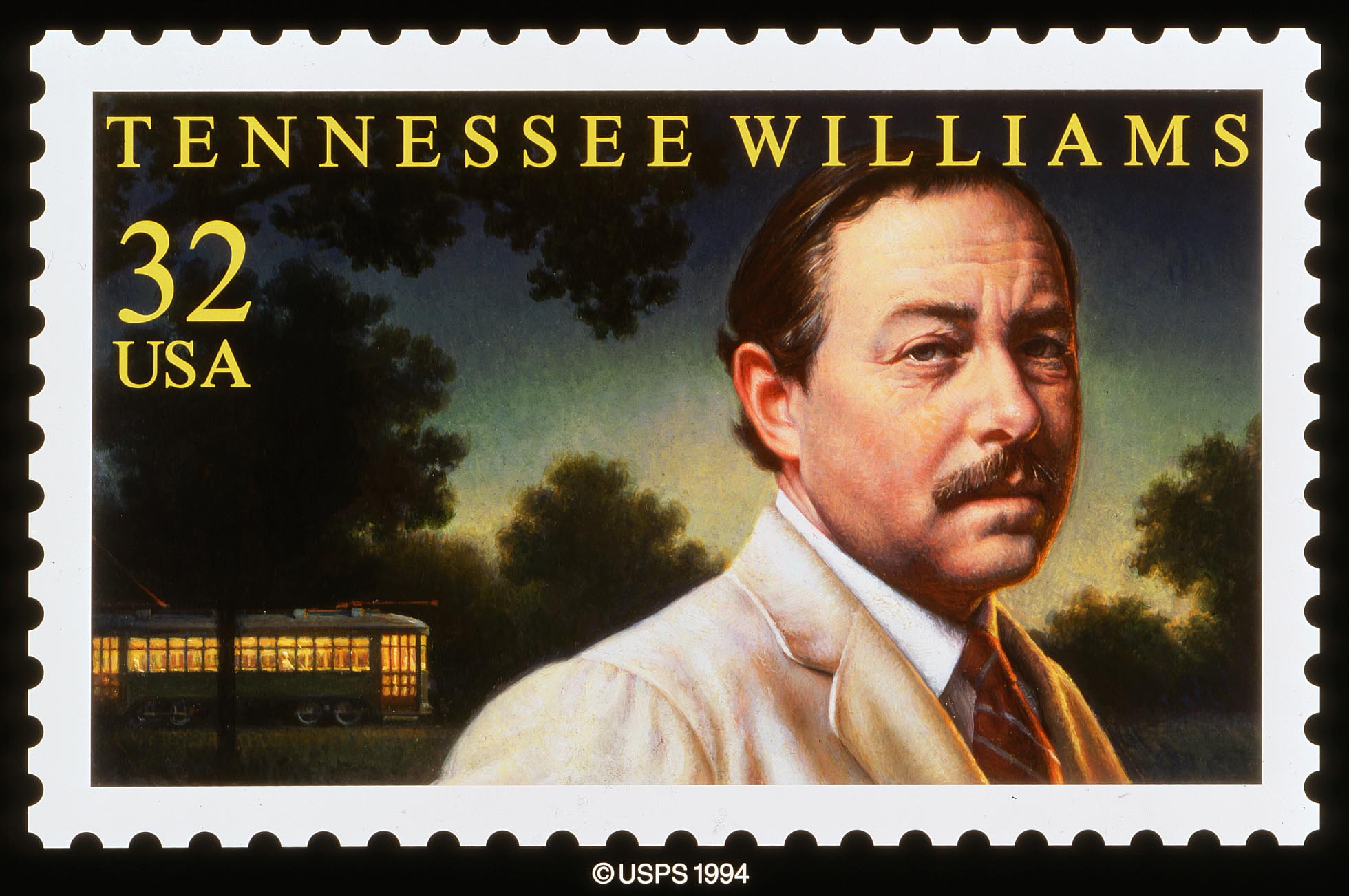 On the second of April, as the Department of Theatre’s production of Not About Nightingales was beginning to settle into technical rehearsals, I sat down with director Tom Mitchell (pictured, right) and asked him a few questions I had been eager to discuss. Full disclosure: I had been working as Mitchell’s assistant during this production. This made me intimately familiar with the production (which I did not review); it also made me a firsthand witness to Mitchell’s knowledge of Tennessee Williams. Interviewing him was a pleasure, and I am pleased to present our conversation as well as Mitchell’s humble, jolly attitude toward the playwright he clearly reveres so much.
On the second of April, as the Department of Theatre’s production of Not About Nightingales was beginning to settle into technical rehearsals, I sat down with director Tom Mitchell (pictured, right) and asked him a few questions I had been eager to discuss. Full disclosure: I had been working as Mitchell’s assistant during this production. This made me intimately familiar with the production (which I did not review); it also made me a firsthand witness to Mitchell’s knowledge of Tennessee Williams. Interviewing him was a pleasure, and I am pleased to present our conversation as well as Mitchell’s humble, jolly attitude toward the playwright he clearly reveres so much.
[Editor’s note: Although the plays discussed herein were written decades ago, we feel compelled to let you know that there are “spoilers” ahead.]
———
Smile Politely: How are the worlds Tennessee Williams creates different than our own?
Tom Mitchell: Well, first of all, Tennessee Williams was writing in the 1930s, and so, just because he’s writing in a different time period, the play is going to be different than our own time. In particular, the 30s is during the Great Depression in the U.S. It was a time of economic desperation for a lot of individuals, as well as political volatility. Where, because of the desperate economic situation, people were really seriously considering radical options in politics and in society. In particular, Williams was aligned with leftists and communists and labor leaders that considered ways of deconstructing the social order so that working class people or poor people could have more power in the system. It’s different than where we are today, although there are similarities. I think that we’re reaching the same kind of time.
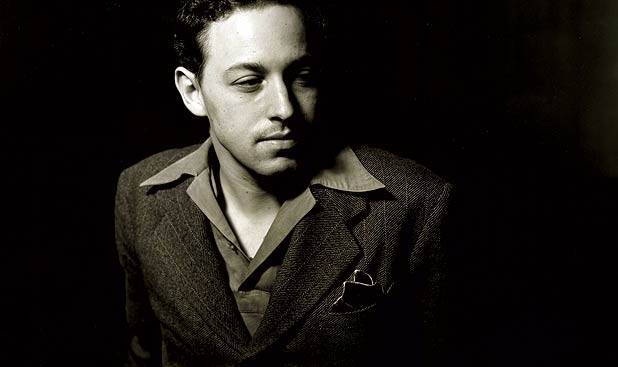
SP: Do you think Williams’ poetic imagination influences the way the characters in his plays should think and do think about themselves?
Mitchell: Yeah. I mean Williams himself was a poet and certainly starts as a poet and thinks of himself as a poet. I think that thinking about poetry broadly, appreciating how language can represent bigger ideas, how images can be metaphorical and stand for other things — I think he thinks poetically even about action and about scenery, so that what’s represented onstage is not necessarily real, but it may stand for something else.
SP: Thinking about Jim’s understanding of himself as a bird.
Mitchell: Uh-huh, as “Canary Jim”
SP: Yeah, so how does that play into the way that Jim moves in the space? Because we’re working in Tennessee Williams’ world, so does that he thinks of himself as a bird then change the way he delivers lines or moves in space?
Mitchell: Well, that’s a good question. I mean Jim is in jail, so he’s in a series of cells, in cages, and we see him move in the course of that play through the two different cells. Moves in and out of those and the office that he works in, which is another kind of sort of confining cell. All three of these spaces are small, restricted spaces, and he’s drawn to escape through the window of the office where he works. [The window] ultimately draws him away.
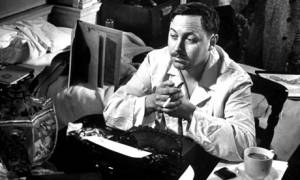 SP: As a director, for an actor, do you think keying into this idea of Tennessee Williams’ poetic imagination could help the actor onstage?
SP: As a director, for an actor, do you think keying into this idea of Tennessee Williams’ poetic imagination could help the actor onstage?
Mitchell: I think it could, yeah
AG: What about Tennessee Williams first sparked your interest, and how has that evolved?
Mitchell: I was probably first drawn to The Glass Menagerie. I remember seeing productions of that, and I thought, “This is truth.” There’s truth in this play, and the expression of experience in that play was an expression I understood, so mostly my connection first starts with the inner life of the characters that are expressed in Williams. The need for escape, the need for realizations in life, for meaning in life that those characters face. And then the midwestern place that Williams was coming from, St. Louis. There was something about that that I also recognized because my own background is in the midwest. Even though Williams is a southern writer, he really was writing from St. Louis, from the heartland, so I recognized that world. Then, the more that I’ve worked with Williams, I find that I’ve been really drawn to his sense of social justice and the way he tries to give voice to the powerless. He calls them the fugitives, The Fugitive Kind; those who don’t fit in, they may be poets, they may be dreamers, but they don’t fit into the bourgeois world that he found himself in. And I think still they wouldn’t have fit into our sort of bourgeois mainstream world that places values on things that I think Williams would’ve said were superficial. Status and power and control and so forth — these are characters who need freedom. They yearn to express themselves, to express their feelings, their emotional life, even if that emotional life is outside the accepted norm. So those are the things that drew me to Williams.
SP: Do you think that your new understanding of Tennessee Williams from your study of him combats or is different than maybe what we prize Williams for?
Mitchell: Yeah, I think a little bit. I think especially the political and social consciousness. I think Williams is mostly appreciated for the psychological reality of characters. The psychosexual expression. In A Streetcar Named Desire, Cat on a Hot Tin Roof, and Night of the Iguana are characters who have sexual need and express themselves frankly in a way that in the 1940s and 50s wasn’t done, and he really broke the expectations that way. He’s identifying with characters who are able to express their yearning and desire for one another even when it breaks the rules. Whether it’s rules of propriety or legal rules; at the time to be openly gay was illegal, to express yourself that way. He really challenged things, but I think these plays from the early part of his career — from the 1930s — broaden it out and I really think that it does make us aware of his political point of view and how strongly he was an advocate for the poor, the racial minorities, women. I think he’s always portrayed strong women, but I think you kind of see it in these early plays that he’s also an advocate for a woman’s need and right to express herself and to express herself in all sorts of ways — politically, but also sexually and emotionally and not to be dependent on a man to define her life.
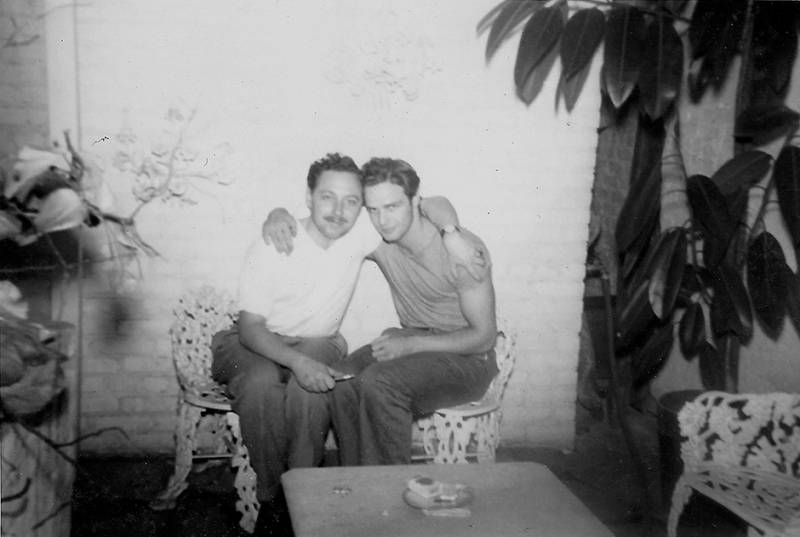
SP: As a director, do you find that difficult to handle — being that this is an early work of Williams: an audience member coming in looking for that psychosexual connection? Does the play do that defining work of itself, or are we still looking for how this is psychosexual?
Mitchell: Actually what I find is: people come in, if they know Williams, if they even care enough (I’m coming with some preconception that Williams is going to be this psychosexual writer), and they are pleasantly surprised. So it expands their understanding, and it’s like, “Oh, that’s different!” But they also see how it connects. Often people will say, “Oh, you can see the beginnings of these other themes or other characters or so forth in the early plays,” and that’s cool, too. I think to see that this writer’s work is a larger broader story than what we is really useful, especially because he is an American writer — one of the greatest American writers. So it helps us understand, I think, our own literary dramatic heritage by understanding more about Williams. If that’s worth anything.
SP: Is there a favorite Tennessee Williams anecdote, from his life, that you find funny?
Mitchell: Oh gosh, I don’t know if it’s an anecdote! I think it’s really interesting, to me, that during this early period he hung out with these guys who were Communists — who wrote and edited a magazine called The Anvil that was for labor, working class literature. They came to see his early plays in St. Louis,, came to parties at his house sometimes, and he was sometimes frustrated with them and sometimes frustrated with their politics, but also he was influenced by them, and he wanted to be published in The Anvil. I mean, he submitted stories, and he was disappointed that they didn’t get published in there. It’s not an anecdote, although he does talk about them coming to a party where Wally Wharton drank too much, and his sister Rose was at that party, too, and she was complaining because of all the ruckus. His parents were away, and he wasn’t really supposed to be having this party at the house, and so she was complaining, and he told her “I hate your stinking face” on the staircase of the house. Later he writes about how he felt — you know, in retrospect — so bad about confronting his sister that way. That story has a lot of the elements of his life at that time period.
SP: Do you think there is a need or do you think it would be useful for us to contemporize Tennessee Williams? To bring him, the idea of him and his work back into our understanding of the world? Do you think he would be a useful person to make popular?
Mitchell: Yeah, I do. And it’s not just Williams. At this point in our history, getting in touch with what was going on in the 1930s — in literature, politics, and everything else — would be really beneficial to us. To look at what was going on and how we dealt with it. Partly because, during that time, people were openly considering communism as an alternative political and social system. Then what happened was WWII broke out, and in the Soviet Union Stalin had taken over and perverted some parts of communism and was a tyrant, and communism became a dangerous thing even to be associated with. It had been worth thinking about and talking about and seriously considering through the 30s, and it suddenly then became, like, “You can’t even be associated with it.” So everybody had this need to see some change in this social system because the rich had all the money and the poor didn’t have any money or power. It seems to me that we should go back to look at that because so far nobody’s offering any way out of this current economic situation. Where the balance of things is so out of whack that we have wealth concentrated in such a small number of people.
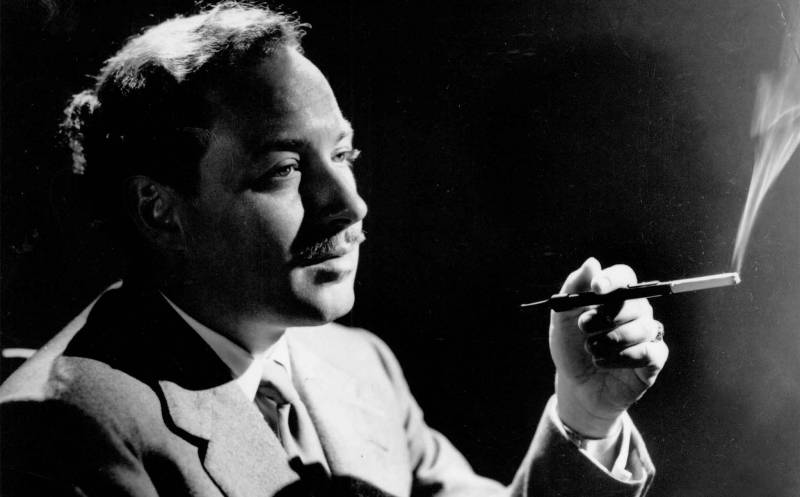
SP: How does Tennessee Williams’ work correspond or combat to ideas or themes you try to work with as a director? If you, as a director, feel a certain cause is important or worth advocating for, how do you find that within his work?
Mitchell: I think it’s probably, like I said — what drew me to him is there’s some consistency there, so it’s not hard for me to find it in his work. In some of his later plays, where he’s stylistically trying things that are more radical and also maybe politically advocating for positions that are more radical, it’s a little harder for me to identify with some of that, for whatever reason; but in general I think I’m drawn to him because there is that connection.
SP: What do you think then is the director’s responsibility to Williams when they produce one of his works?
Mitchell: Well, I think, like with any playwright, you want to represent that playwright in your own time and circumstances, so you translate what the playwright intended in his original time and place and think: How does that communicate now? I think that’s always a challenge. I think, in particular to Williams, to remember that he is calling for what he called “the plastic theatre.” That includes scenery and scenic expression and sound and music and dance and poetry, and certainly not just realistic representation of behavior. Williams, from the very beginning, valued that broader way of thinking about the theatre. So, any time I’m working with Williams, I’m looking for how he means that. How does this play push beyond just realism? So that’s maybe a responsibility I feel in particular, because I think that gets overlooked.
SP: So where is Not About Nightingales’ place within Tennessee Williams’ early trajectory of plays? Because this project does mark the end of Illinois Theatre producing these early plays.
Mitchell: Well, just chronologically, it’s one of the last things he wrote at Iowa when he was still a student, just before he took off and eventually went to New York and wrote Battle of Angels, his first sort of professional production. And then eventually we get to The Glass Menagerie. It’s also the last of the 1930s plays, so it’s at that place where world history is changing. Soon after this WWII really breaks out, and the US gets involved, and everybody’s attention and thinking changes a whole lot, and so it fits in historically and chronologically that way. In the mix of these early plays, it’s maybe the most overtly political because it’s addressing a very specific social issue and historical event head on. You know he’s basing this on an event that really happened, and that’s different than any of the other early plays, and it’s different in the later plays. I don’t know if he really ever does that again exactly like this. One of the things about the early plays is that they are each different, and it’s like he is trying out how to write a play and what are the different ways that you might write a play. That’s part of what I’ve learned from this, too: he’s not one thing. I think people tend to think of him as one thing, that he’s one kind of playwright that writes these psychological sexual plays, but I think No. Looking in the archives, the plays that are written are sometimes just fragments of plays. He has a play about a Japanese princess that’s written sort of in the style of Kabuki, a play set in a Russian village—a fable kind of thing, he has this poetic play Act of Love that’s an anti-war play written in poetry. So he’s experimental—he keeps experimenting, he keeps trying things; if anything he did that all through his life, but people never wanted to give him that. They always wanted to pin him down and create the identity of Tennessee Williams.
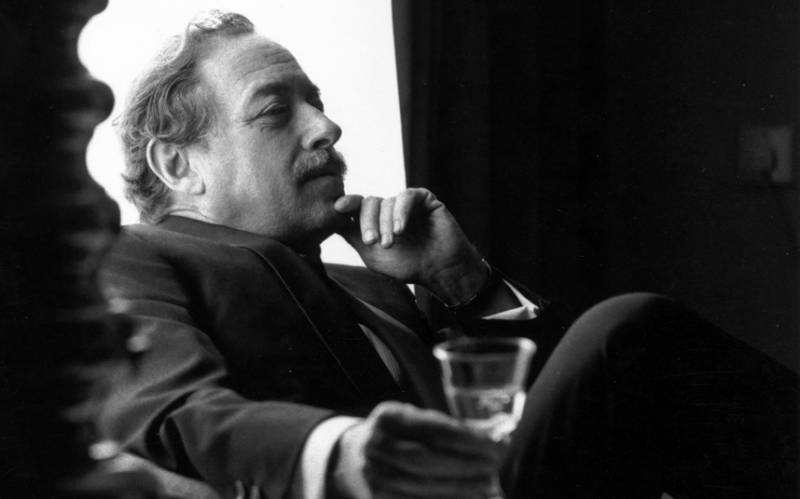
SP: Do you think that because The Glass Menagerie was this first domestic play, the play that made him famous, do you think that affected or stunted his social political consciousness?
Mitchell: Yeah, maybe, it may have affected it partly because he wrote plays to be produced. He wanted to be produced; he was ambitious about that, and so, when he found something that worked, he was going to try to make something else work. But I think it was even more about what was happening politically and historically. With what was happening with WWII — everything changed, the world changed, the point of view of everybody changed. You just have a different outlook on things than before that war, so it wasn’t just the success of that play.
SP: Any last favorite quotes? Or is there anything of Williams that has a specific resonance with you?
Mitchell: You know, it’s like whatever you’re reading in the moment sometimes does that for you. In this play (Not About Nightingales), Jim has this speech to Ollie about “intellectual emancipation” that I think kind of expresses some of what Williams is about. This value of the imagination and the intellect and that a person can become free by allowing themselves to be free — by imagining himself out, beyond the limitation. I like that. That in this play is followed through by Jim’s desire to get out of this prison, whatever it takes ,and so poetically his actions at the end of play, which are desperate and sort of impossible, are a great dramatic representation of that desire for freedom. I love how those things combine. In Stairs to the Roof — which is another early play written around the same time but unproduced until 1943 or 1945 — the characters in the end leap off of an office building with the same desire to become free of the restraints on their lives. It’s similar, actually, in some of the other versions of [Not About Nightingales]. He uses almost the same speeches to express this need to just fly away from those things that hold them down. In Stairs to the Roof, they’re gonna fly away to another planet and repopulate that planet, which I think is a pretty cool idea.
———
You can read Smile Politely’s review of Not About Nightingales here. The play will continue its run in Krannert Center’s Studio Theatre through April 19th.
Director photo courtesy of Tom Mitchell.








